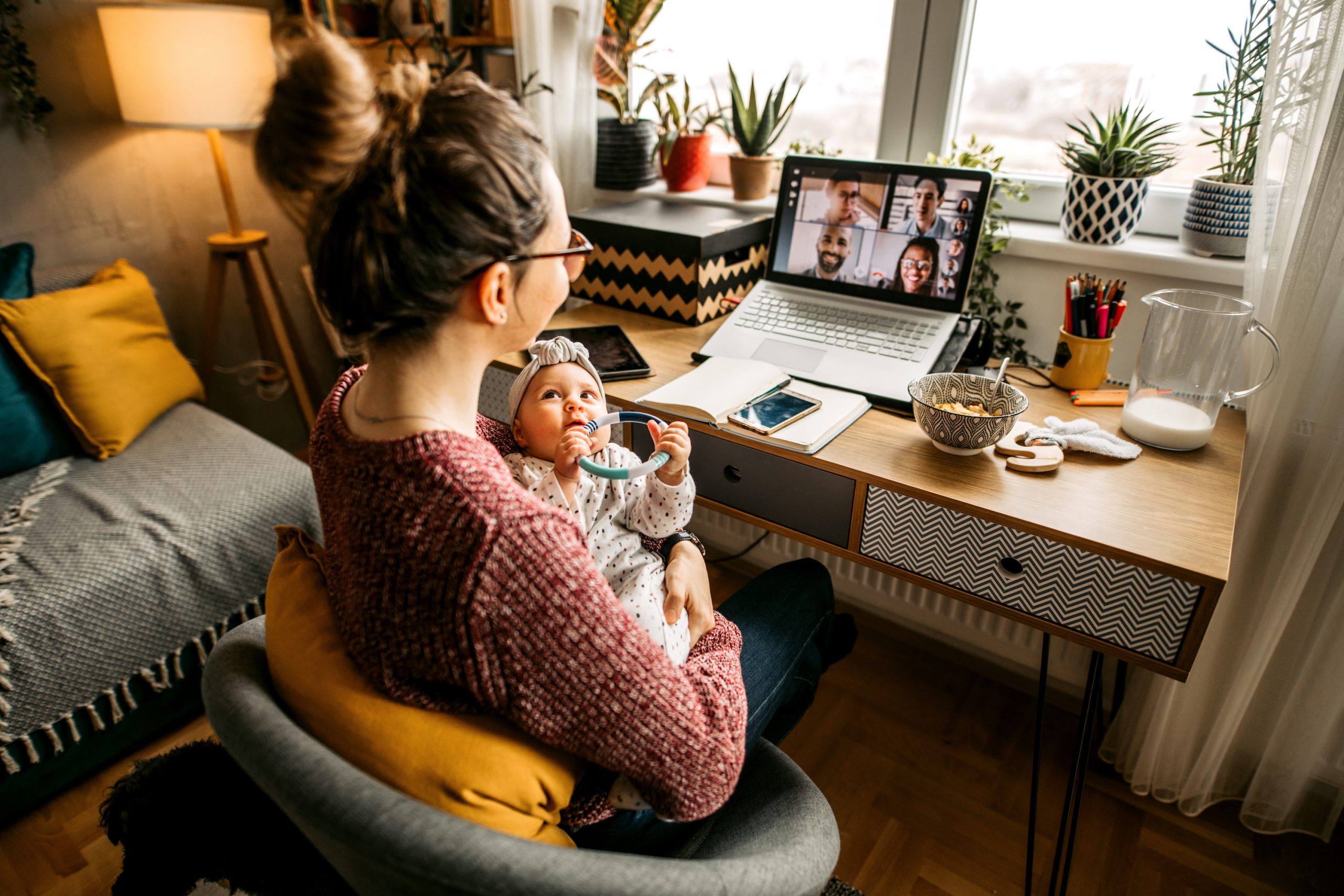As we reimagine work post-pandemic, are we heading towards a nationwide 'flexidus'?
Thinking about leaving your job for a more accommodating employer? You could be part of an upcoming ‘flexidus’ among UK women, according to new research from LinkedIn

Thinking about leaving your job for a more accommodating employer? You could be part of an upcoming ‘flexidus’ among UK women, according to new research from LinkedIn
Rewind to 2019, and the idea that we’d soon be having meetings in our pyjama bottoms, sharing a deskspace with our other half and moving about five steps a day would have been unthinkable. But, of course, Covid-19 came along and our lives became unrecognisable.
As people and their employers were forced to rethink what a working day could look like, we realised that 9–5 ‘bums on seats’ wasn’t the only way. In fact, working remotely — and during hours that fit around other responsibilities, like homeschooling and childcare — could work very well too.
It’s no wonder then, that so many women are unwilling to go back to the old world order. Findings show that following the lifting of the UK Government's Covid restrictions, businesses are starting to reinforce working from the office. And women are starting to feel the impact.

In a new study by LinkedIn, almost a quarter (23%) of the women surveyed said they are more likely to leave their role since their employers started enforcing back to office policies. More than one in five of those who have had to leave their job due to the lack of flexibility believe this has negatively impacted their career progression, and three times more women (21%) than men (7%) have had to choose between childcare and their career.
However, it’s not necessarily the case that companies aren’t trying to be more progressive: 80% of hiring managers whose company offers flexible working say that they have updated their flexible working policies as a result of the pandemic. Yet, almost two in five (37%) of female professionals feel as though the progress made on flexible working during the pandemic is now being lost.
Ultimately, if women’s expectations aren’t met and they decide they can do better, we could be heading for a nationwide ‘flexidus’, with women flocking to companies that can accommodate their needs.

The women surveyed highlighted the real benefits of flexible working, as well as the toll that a lack of flexibility can have. Almost a quarter of women (22%) said they would thrive if they were able to have increased flexibility at work while 30% said more flexibility would improve their mental health.
Of the women that were surveyed, the three policies deemed the most useful when it comes to flexible working are flexible start and finish times, an increase in annual leave and a 4 day working week determined by employees.
It’s perhaps no surprise then that almost half of female participants said that there is still a stigma attached to flexible working, with 28% even going so far as hiding their flexible hours from colleagues, clients and friends. For these reasons and more, LinkedIn is encouraging women to start sharing their experiences using #FlexibleIs to help spark conversation and tackle the stigma.
If you’re thinking of leaving your own job for a lifestyle with more freedom, you’re definitely not alone. But how can you approach a conversation about flexible working with your employer?
Charlotte Davies, Career Expert at LinkedIn, shares her top tips.

1) Do your homework
Doing your homework will help you to feel prepared and more confident before you open up any conversations with your employer around flexible working. Take a look at similar companies in your industry and how they approach it, and also think about how working flexibly will help you to perform your best at work. For example, will working from home two days a week help you to concentrate better if you often have big documents to write, or would finishing a little earlier help to alleviate a lot of anxiety around the race to the nursery pick up? If you can outline how flexibility will help you to perform even better at work, it can help you to build a really compelling case for your employer.
2) Be honest
There is a clear disconnect or lack of communication when it comes to flexible working between women and their bosses. Remember that most good employers will want to make sure that they’re providing the best opportunities for their employees and be keen to find out how to embed flexible working that actually works for people, rather than just assuming a one-size-fits-all approach.
Schedule a chat with your manager to see what they think might be feasible; even if they aren’t able to give you everything you ask for in terms of flexible working, it’s worth voicing your thoughts in case you are able to meet in the middle.

3) Check out online courses
If you’d like more specific guidance on how to approach some of these conversations with your employer, there is plenty of advice and support out there. LinkedIn is opening up free online learning courses to help build flexibility and inclusivity in the workplace. For example, courses on Negotiating Work Flexibility, Preparing Your Family Leave and Return and Inclusive Female Leadership, which are currently available for free until the end of May.
4) Openly celebrate the benefits of a career break
It’s important to remember that flexibility doesn't just relate to the day job, it’s how we can incorporate it into our whole careers, for instance through career breaks, and focusing on the benefits it brings.
The study found that 25% of women who have left a job because of lack of flexibility have had to take a career break and that 59% believe there is a stigma attached to doing so.
To help empower women to take the next step after a career break and to help support more consistent and equitable flexible working for all, LinkedIn has added a new career break option. Members are able to list the reason for a career break on their LinkedIn Profile, helping people who’ve taken career breaks to stand out for the life experiences they’ve built during this time.
5) Join the conversation
LinkedIn is encouraging its members to share what flexible working really means and how it’s supported their career using the hashtag #FlexibleIs.
What does flexible working mean to you? How could it positively impact your life? Head to LinkedIn and share your thoughts and let’s reshape work in a way that works better for all of us.
Marie Claire Newsletter
Celebrity news, beauty, fashion advice, and fascinating features, delivered straight to your inbox!
-
 Chicken Shop Date star Amelia Dimoldenberg shares the 5 bits of advice that shaped her career
Chicken Shop Date star Amelia Dimoldenberg shares the 5 bits of advice that shaped her careerRead on to find out why it pays to dream big, plus why you should always listen to your friends
By Kate Hollowood
-
 What is the Clubhouse app? Here's everything you need to know, plus how to get an invite
What is the Clubhouse app? Here's everything you need to know, plus how to get an inviteLast year it was Zoom and Houseparty. The next app everybody's talking about? Invite-only platform Clubhouse.
By Ally Head
-
 These new gen bosses are redefining flexible working
These new gen bosses are redefining flexible workingPart-time, flexi-time, your time - the way we work is about to change for the better
By Tracy Ramsden
-
 How to make a big decision in 9 easy steps
How to make a big decision in 9 easy stepsTough call? Here's how to find the answer that's best for you
By Tracy Ramsden



